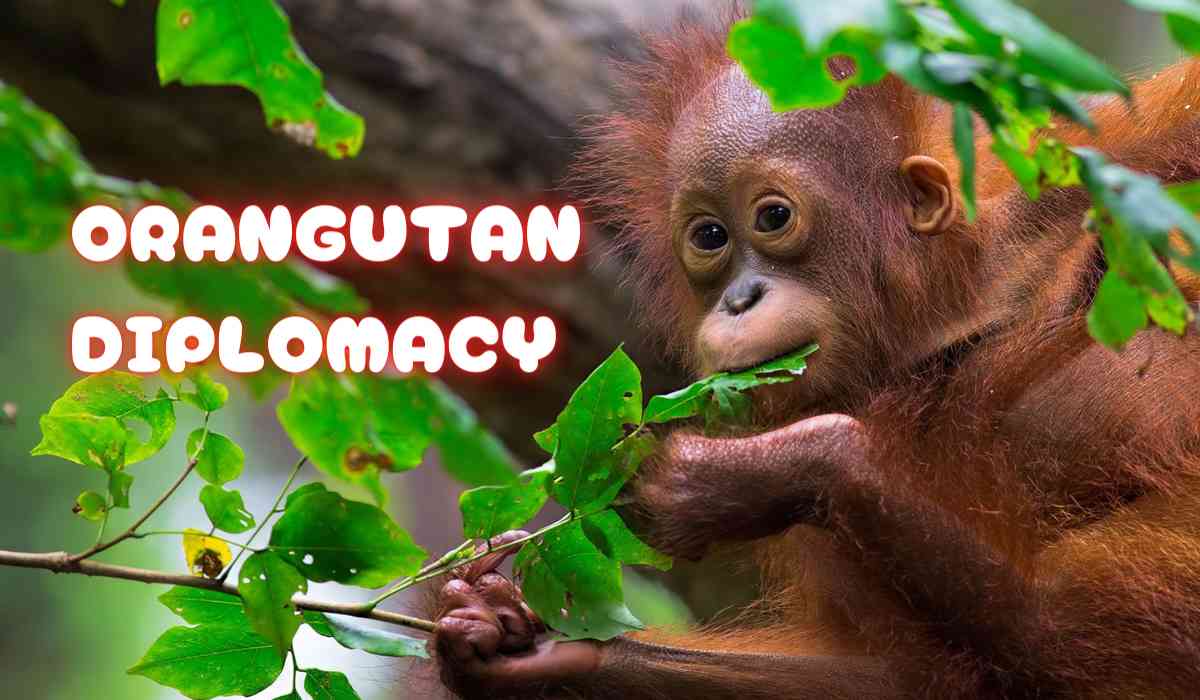Buy Palm Oil, Get Orangutan!
In a move reminiscent of "panda diplomacy" and "koala diplomacy," Malaysia is embarking on a novel diplomatic strategy dubbed "orangutan diplomacy." This initiative aims to assuage concerns over deforestation associated with its palm oil industry by gifting orangutans to countries that are major purchasers of Malaysian palm oil, including the EU, India, and China.
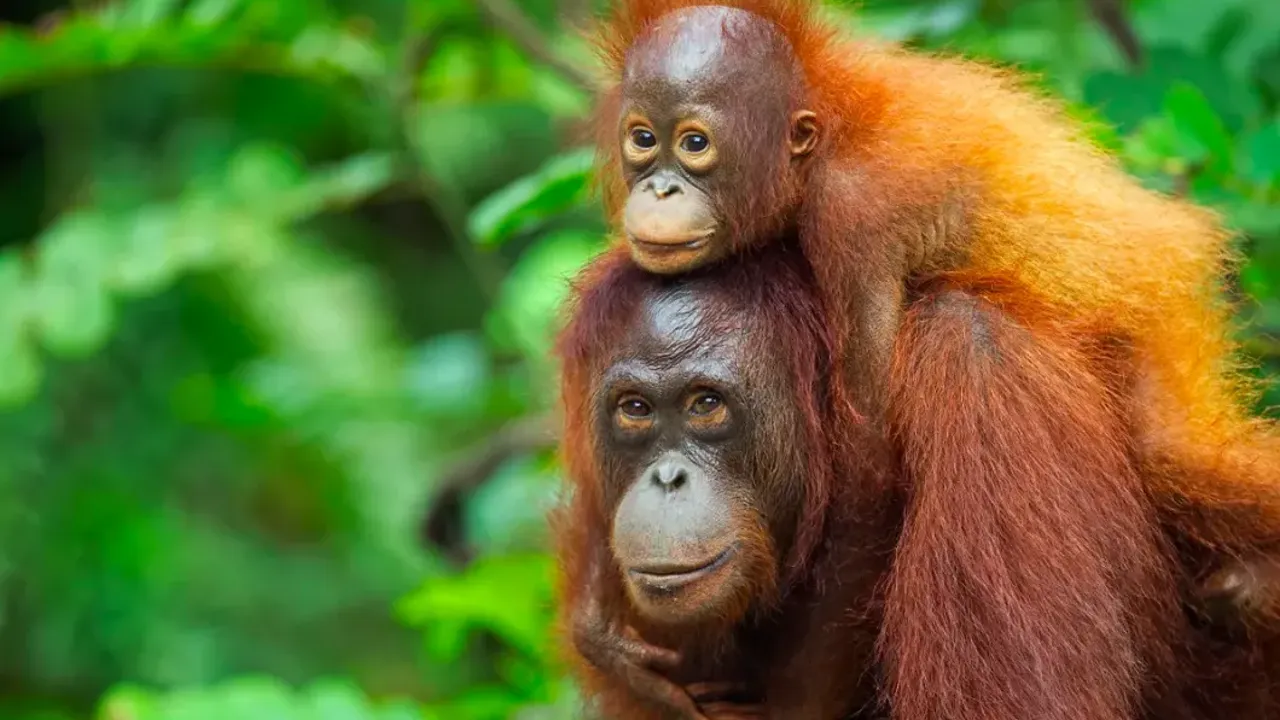
The Significance of Palm Oil
Palm oil serves as a ubiquitous ingredient across various consumer products, ranging from food items like pizza, chocolate and instant noodles to personal care products like shampoo, lipstick and soaps. Its widespread use underscores its economic importance to Malaysia and other palm oil-producing nations.
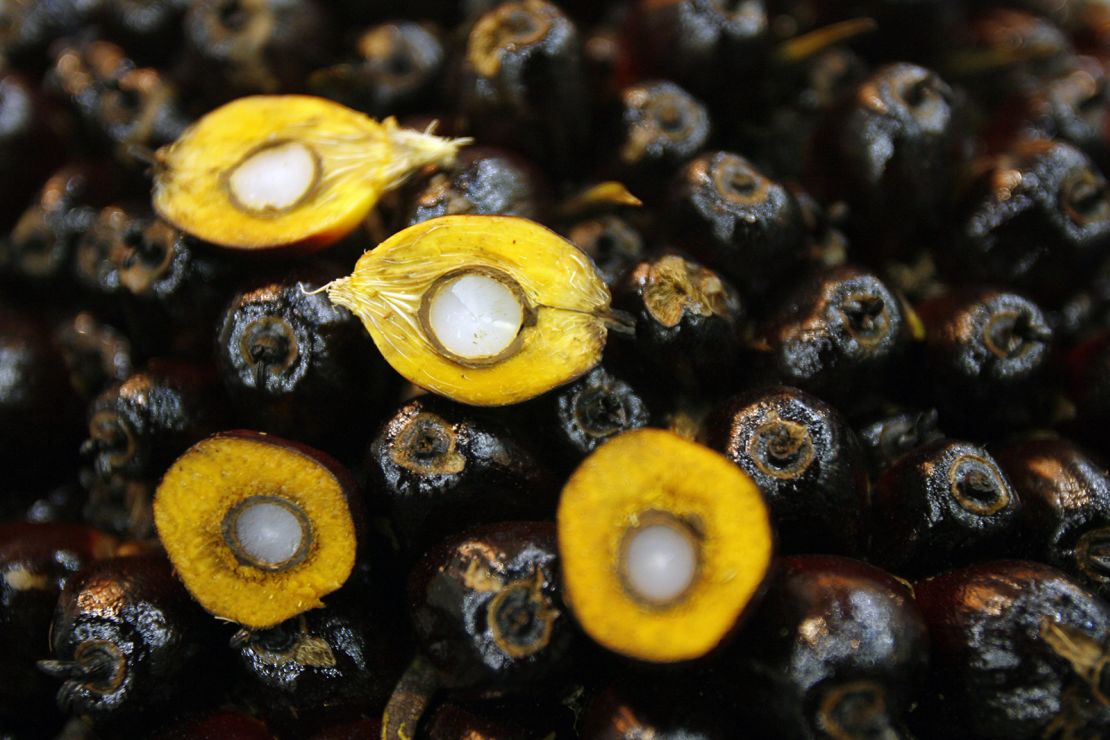
Orangutans: Symbols of Environmental Conservation
Orangutans, indigenous to the rainforests of Borneo and Sumatra, symbolize the ecological richness of Southeast Asia. However, they face a grave threat to their survival due to habitat loss caused by deforestation, primarily driven by the expansion of palm oil plantations. With their population dwindling to an estimated 120,000, concerted conservation efforts are imperative to safeguard these iconic primates from extinction.
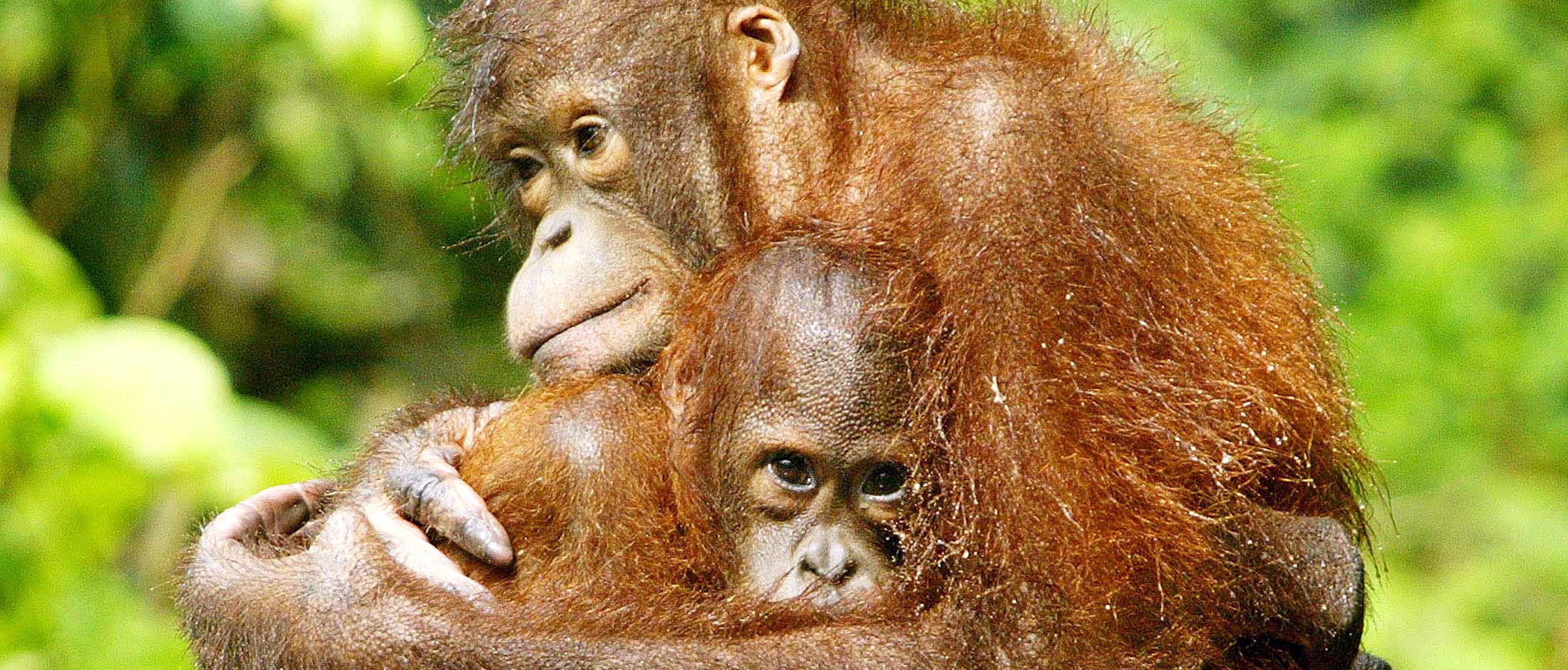
Balancing Economic Imperatives and Environmental Responsibility
The palm oil industry plays a vital role in Malaysia's economy, contributing significantly to its GDP and providing employment opportunities. Nevertheless, the industry's sustainability is increasingly questioned in the face of environmental degradation and biodiversity loss. Malaysian authorities have undertaken measures to promote sustainable palm oil production, including improving agricultural practices and implementing certification programs. However, the effectiveness of these initiatives remains a subject of debate amidst ongoing environmental concerns.
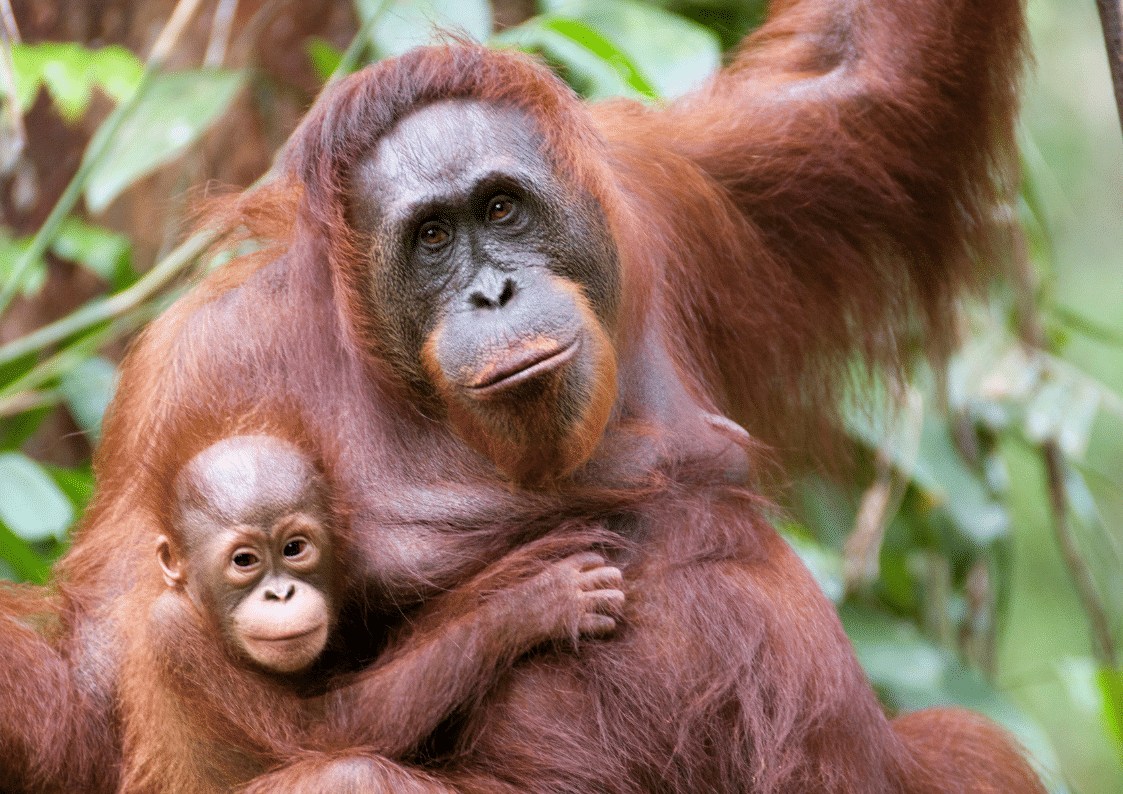
What is ‘orangutan diplomacy’?
-
Malaysia’s Diplomatic Strategy:
- Malaysia aims to emulate China’s "panda diplomacy" by offering orangutans as gifts to major trading partners.
- Minister Johari Abdul Ghani announced the plan, seeking to enhance goodwill with trading partners.
-
Criticism and Context:
- The plan has drawn criticism from conservation groups, especially in light of the EU's import ban on deforestation-linked commodities.
- Malaysia, the second-largest palm oil producer globally, faces challenges due to environmental concerns surrounding palm oil production.
-
Environmental Concerns:
- Palm oil production in Malaysia has been linked to deforestation, habitat destruction, and endangerment of species like orangutans.
- The diplomatic maneuver emerges amidst global environmental awareness and pressure from importers like the EU regarding sustainability.
-
Diplomatic Objectives:
- Malaysia plans to demonstrate commitment to biodiversity conservation through orangutan diplomacy.
- Trading partners, including the EU, India, and China, are targeted for this diplomatic effort.
-
Ministerial Statements:
- Minister Johari emphasized Malaysia's commitment to biodiversity conservation and sustainable palm oil production.
- The minister stressed the need for Malaysia to proactively address environmental concerns instead of adopting a defensive stance.
-
Future Plans:
- Details such as the timeline and acquisition methods for orangutans were not disclosed.
- Collaboration with palm oil giants and environmental groups is encouraged to ensure the well-being of the orangutans.
-
Public Perception and Response:
- The initiative is seen as a manifestation of Malaysia's dedication to wildlife conservation and forest sustainability.
- Amidst accusations and restrictions from palm oil importers, Malaysia aims to assert itself as a producer of sustainable palm oil.
-
Final Remarks:
- The plan reflects Malaysia's proactive approach to address environmental concerns and uphold its commitment to sustainability.
- Further details regarding the implementation of orangutan diplomacy are awaited.
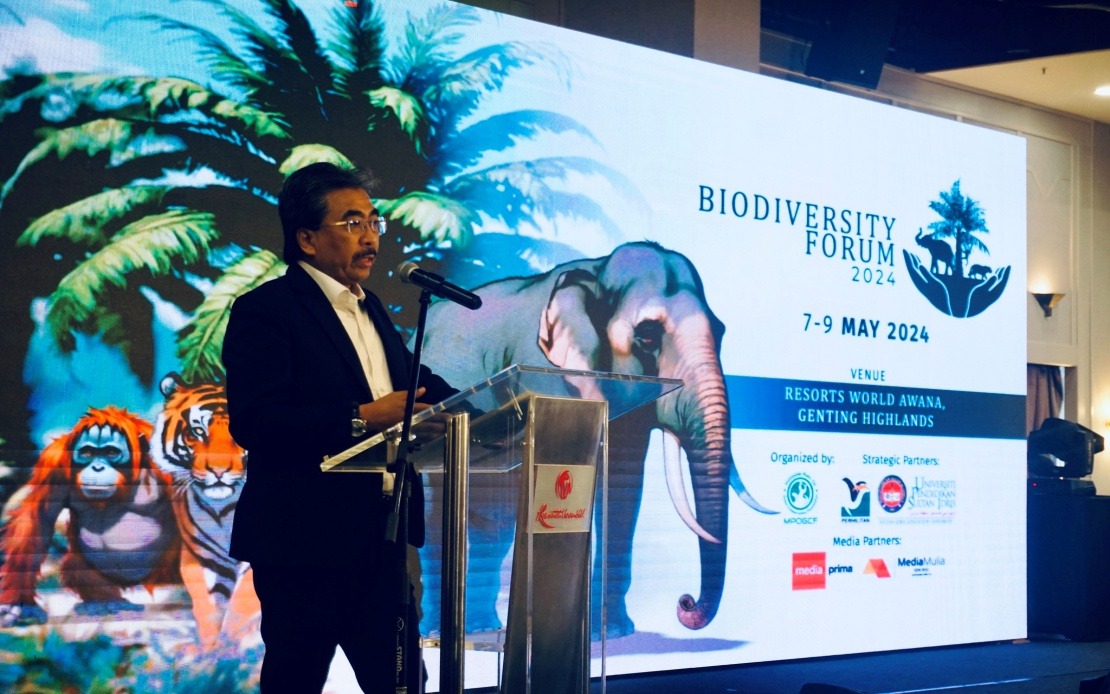
Criticism from conservationists
-
Orangutan Status and Threats:
- The orangutan, named "man of the forest" in Malay, faces critical endangerment, with fewer than 105,000 individuals residing on Borneo.
- The World Wide Fund for Nature (WWF) highlights palm oil production as a significant threat to orangutan survival, contributing to their declining numbers.
- The International Union for Conservation of Nature (IUCN) predicts a sharp decline in the orangutan population on Borneo due to human activities and habitat loss.
-
Controversial "Orangutan Diplomacy" Plan:
- The Malaysian government's proposal, dubbed "orangutan diplomacy," aims to gift orangutans to other nations, reminiscent of China's "panda diplomacy."
- Conservationists and advocacy groups express heavy criticism, labeling the plan as "obscene" and unsuitable for orangutan conservation.
- Concerns are raised about the effectiveness of the plan in comparison to broader conservation efforts and its potential impact on existing orangutan populations.
-
Conservation Advocacy and Alternatives:
- WWF Malaysia advocates for in-situ conservation, urging the establishment of wildlife corridors within palm oil estates and halting further deforestation.
- The group emphasizes the importance of engaging trading partners in Malaysia to support conservation initiatives locally rather than exporting orangutans.
- Justice for Wildlife Malaysia echoes the need for alternative diplomatic approaches, emphasizing the necessity for thorough research on the plan's viability and impact.
-
Backlash and Expert Opinion:
- Conservationists and environmental groups swiftly denounce the orangutan diplomacy plan, criticizing its ethical implications and environmental consequences.
- Stuart Pimm, a conservation ecology expert, condemns the plan as hypocritical and counterproductive, highlighting the importance of genuine conservation efforts over symbolic gestures.
- Pimm contrasts Malaysia's proposal with China's panda conservation efforts, emphasizing the need for comprehensive protection measures and habitat preservation for long-term species survival.
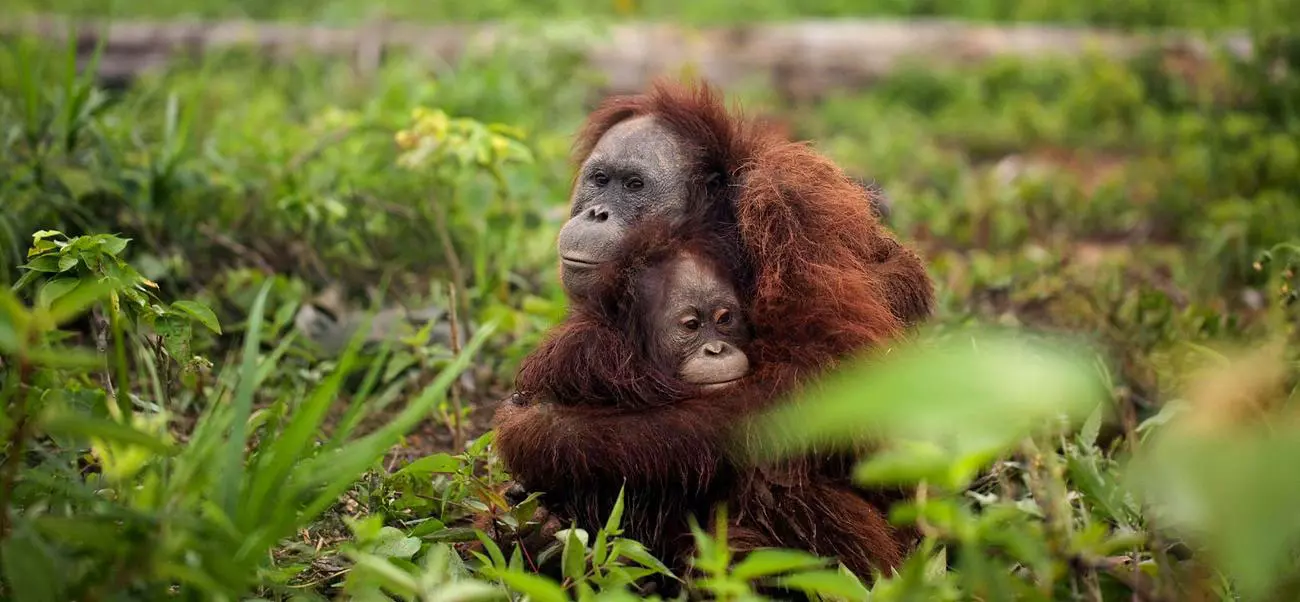
‘A significant driver of deforestation’
-
Opposition from Environmental and Conservation Groups:
- Environmental and conservation organizations strongly opposed Malaysia's proposal.
- Instead, they urged Malaysian officials to focus on reversing deforestation rates, attributing them largely to palm oil cultivation.
-
Extent of Deforestation:
- Between 2001 and 2019, Malaysia lost over 8 million hectares (19 million acres) of tree cover.
- This loss is comparable to the size of South Carolina, as reported by the World Wildlife Fund (WWF) in 2022.
- The WWF's forestry report highlighted Malaysia's historical forest coverage and ongoing threats such as palm oil cultivation and unsustainable logging.
-
Magnitude of Deforestation Threat:
- A 2023 report by climate watchdog Rimba Watch identified 2.3 million hectares of forests in Malaysia at risk of deforestation.
- Despite a downward trend, palm oil cultivation remains a significant driver of deforestation, according to Adam Farhan, the director of Rimba Watch, speaking to CNN.
- Urgent action is needed to halt deforestation in Malaysia, rather than exploiting endangered species for diplomatic purposes.
-
Criticism from Greenpeace Southeast Asia:
- Heng Kiah Chun, a regional campaign strategist for Greenpeace Southeast Asia, dismissed the efficacy of orangutan diplomacy in addressing Malaysia's deforestation crisis.
- He emphasized the need for the Malaysian government to implement anti-deforestation policies instead.
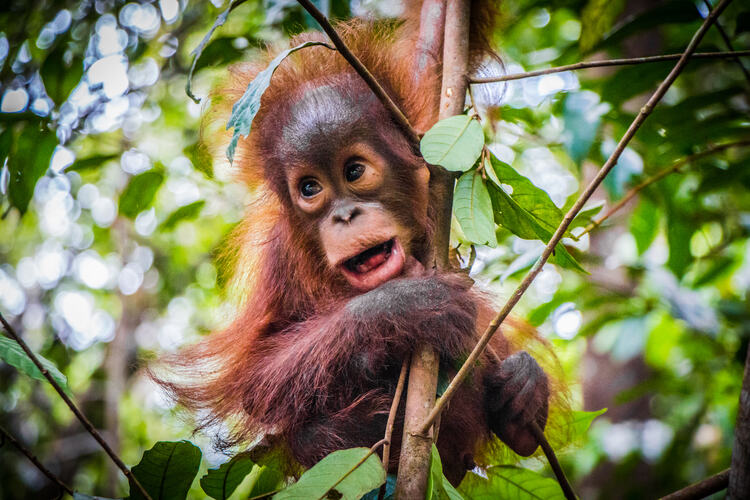
Conservation is ‘crucial’
Orangutans are the largest arboreal animals, primarily inhabiting the lush canopies of tropical rainforests. These remarkable creatures are renowned for their intelligence, exhibiting skills such as utilizing medicinal plants to treat injuries and employing tools like branches, sticks, and stones to access hard-shelled food items like nuts.
-
Population Decline:
- According to a report by WWF Malaysia, orangutans, once abundant across Southeast Asia, have witnessed a drastic decline in population.
- Particularly on Borneo, a significant island shared by Malaysia, Indonesia, and Brunei, orangutan numbers have plummeted sharply over the years.
-
Population Statistics:
- In 1973, Borneo was home to an estimated 288,500 orangutans. However, by 2012, their numbers had diminished drastically to 104,700.
- Presently, it's estimated that approximately 100,000 orangutans inhabit Borneo, with an additional 14,000 residing on Sumatra island in Indonesia.
- WWF Malaysia emphasizes that orangutans are critically endangered, stressing the urgent need for habitat conservation.
-
Conservation Strategies:
- WWF Malaysia advocates for the preservation of orangutan habitats as the primary conservation strategy.
- They emphasize the importance of halting further deforestation for activities like palm oil plantations.
- Promoting sustainable forest management and responsible palm oil production is seen as pivotal in demonstrating Malaysia's commitment to biodiversity conservation.
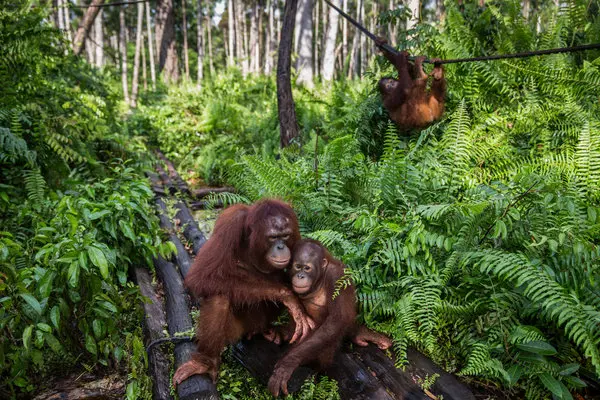
Effective orangutan conservation necessitates the protection of their natural habitats and the prevention of further deforestation for industrial activities. WWF Malaysia underscores the urgency of this issue, highlighting the critical status of orangutans and the imperative need for concerted conservation efforts.
As the curtain falls on Malaysia's "orangutan diplomacy," questions linger about its effectiveness in addressing the pressing issue of deforestation. While symbolic gestures have their place, true conservation demands concrete actions to safeguard the habitats of these remarkable creatures. As the world watches, the fate of orangutans hangs in the balance, reminding us all of the delicate harmony between economic progress and environmental responsibility.
With inputs from agencies
Image Source: Multiple agencies
© Copyright 2024. All Rights Reserved Powered by Vygr Media.

